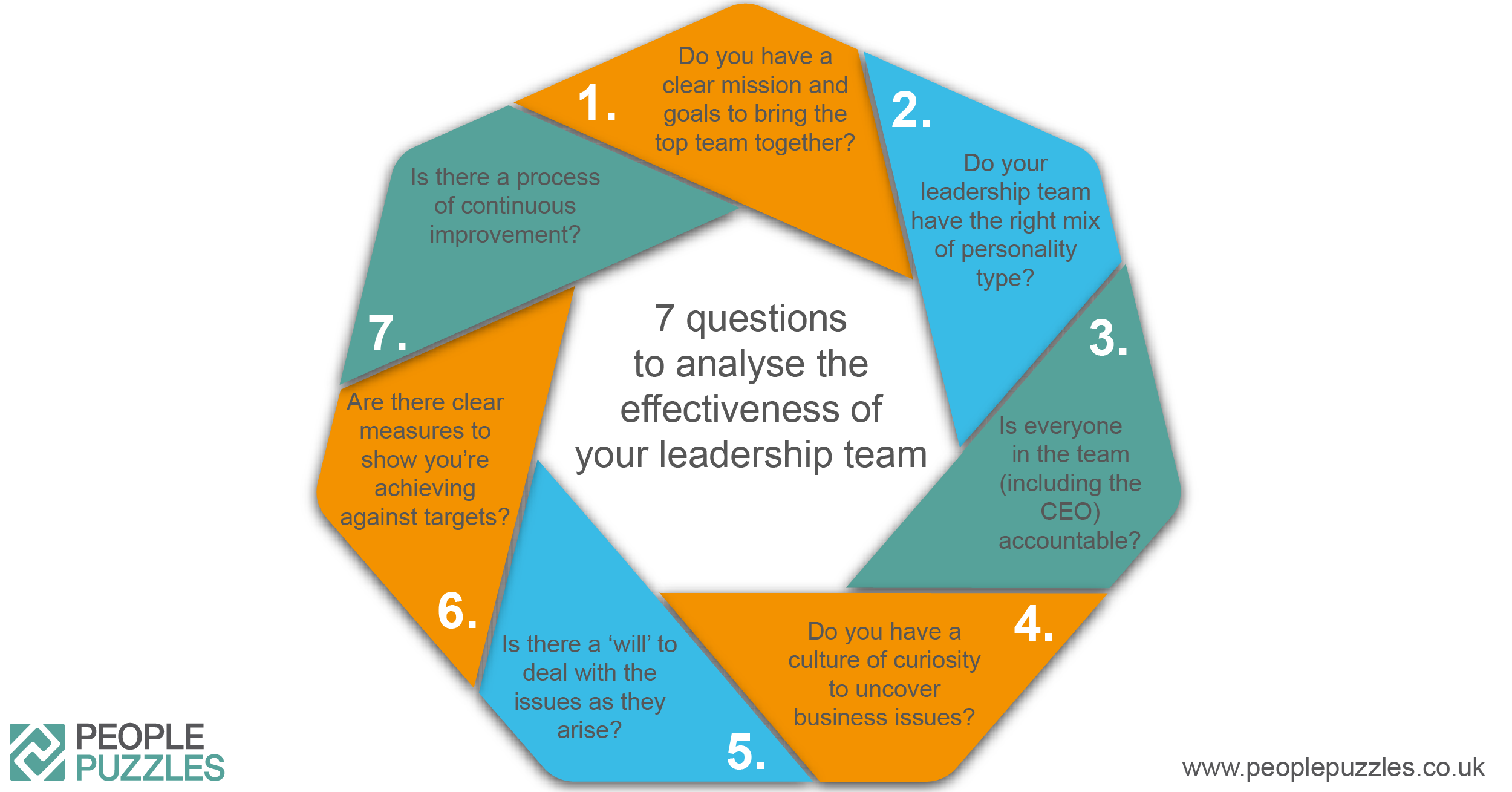What is a high-functioning leadership team?
Jim Lister, People Puzzles Regional Director of Yorkshire and North East, uses a seven-point ‘health checker’ for CEOs to analyse the effectiveness of their leadership teams. Here, he explains how it works.
As small and medium sized businesses adapt to a post-Brexit, post-lockdown hybrid reality, many are beginning to see new opportunities and a potential increase in demand for their services. But is your senior team ready for the new challenges ahead? These are the questions that I ask business leaders to find out if those at their top table have got what it takes.

1. Has the business got a clear mission and goals that bring the top team together? It’s surprising how often many people in senior positions don’t have a clear grasp of what their goals are. It’s an essential ingredient that everyone in the business knows what it is striving to achieve, and their role in making that happen.
2. Does the leadership team have the right mix of people for that business? Too much of one personality type can be unhealthy. In one example, a care home leadership team profiled itself almost with entirely supportive/caring preferences and low analytical preferences. A tech business showed the direct opposite. Personality profiling systems such as EverythingDISC can help leaders appreciate what different types of personality can bring to their business. They can then identify where the gaps are in their team, to bring a healthy balance of leadership styles.
3. Is everyone in the team (including the CEO) accountable? If not, what processes and procedures can be put in place to make that happen with meaningful transparency across the team?
4. Is there a culture of curiosity to uncover issues within the business? I sometimes find there is a ‘shadow side’ to any business – problems that everyone knows are there, but no one talks about them! Unless these issues are acknowledged, any solution will be seen as a sticking plaster and potentially fail.
5. Once you’ve identified what they are, is there a will to deal with the issues rather than pushing them into the long grass? A spirit of openness, transparency and high emotional intelligence is vital to allow for effective problem solving. Techniques such as root cause analysis can help identify what’s really going on.
6. Do you have clear measures that show you’re achieving what you set out to do? It’s vital to recognise success and celebrate when business targets and goals are achieved.
7. Once successes in points 1-6 are in place, is there a process of continuous improvement? This can be aligned to industry standards such as ‘Investors in People’ in order to get good practice validated externally.
Businesses that don’t have a highly effective leadership team are more likely to have silos and departments that fail to communicate properly with each other. These businesses are less likely to retain good people as they become disillusioned, which can lead to a costly high turnover of staff.
If you do have a highly effective leadership team, however, it’s not just your staff that will notice – customers will too. A great reputation can enhance the commercial success and help drive growth. Please don’t shirk what might be a critical issue that needs addressing. Now is a unique time to get your top team into shape so you can succeed in the long term. Call the UK’s leading HR Consultancy People Puzzles on 020 3633 6830 and find out how we can help you do exactly that.

